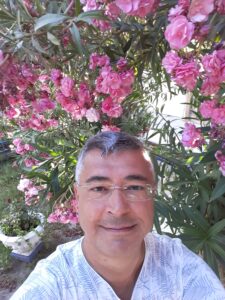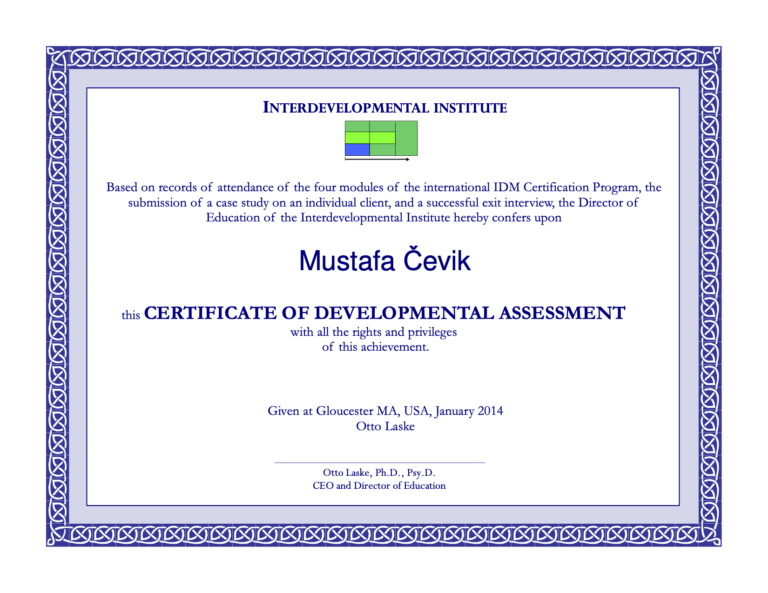For info on my bio, see below #What do I bring to executive coaching?
Consider these questions:
Does it make sense to you to focus on the wellbeing of your team and employees while aiming for improved business outcomes?
Would a human capital strategy in building new capabilities be well served by unlocking and realizing the potentials of your talent pool?
Leader development is part of talent development; would a strengths-based approach fit well with your talent strategy?
In your change efforts, could a values orientation be in service of overcoming barriers and challenges and attaining and maintaining momentum toward positive growth and change?
As you may have guessed: Values, strengths, and a balanced approach focusing on achievement and wellbeing, and above all, the realization of human potentials in service of the greater good are the themes and central topics in our work together.
We are committed to values and strengths of continuing development, supervision, and ethics in service of evidence-based, science-guided, humanistic practice.
What results can I expect from coaching?
We are looking for three kinds of results:
Improvements that can be broadly categorized into three domains of
leadership, or interpersonal behaviors in leader-member or peer-to-peer interactions;
organizing, or within-team and among-team interactional processes; and
business, or productive processes and capital transformations.
The Leadership, Organizing, and Business Domains form a whole.
We are bringing an integrative perspective to your development projects; inclusive of all levels in the form of individual, interpersonal, group, and whole systems, and inclusive of all perspectives in the form of inner-personal or subjective, interpersonal, objective or behavioral, and inter-objective or procedural. These are cultured and nurtured in our dialogic organizations development discourse to deepen your learning and forward your action.
Is it fun to work with us? Invigorating? Challenging?
You can try it out and see for yourself.
This website has two purposes:
to serve as
a personal knowledge mastery tool for me

, and
a resource in our coaching engagement for you
A welcome outcome would be establishing authority.
I am here to support you and your community to thrive by enhancing wellbeing and resilience and attaining valued goals through coaching, teaching, and consulting services.
I am new in this life arena, so my mission is not so clear to me yet. Still, I think it is mainly about growing our collective capacity to experience awe, elation, and appreciation of beauty.
If you think it would be worthwhile to bring more beauty, meaning, and fulfillment into your life, I am here to share what I have learned so far.
Positive Capacities Workshop
Personal Knowledge Mastery Path
(Thriving & Wellbeing)
Positive Capacities Workshop
Strength-Based Leadership Coaching
Dialectical Thinking
Workplace Engagement & Vitality
If you are interested in developing your positive capacities, you might consider engaging in a self-study to learn and practice the foundational ideas of positive psychology. Click here to take you to the Navigations for the Primer to Positive Psychology.
What do I bring to executive coaching?
What Characteristics of Who I Am as a Person May Be Relevant to Executive Coaching?
Executive coaching is a complex field that requires knowledge, experience, and intuition. My unique combination of these elements creates my coach identity, allowing me to consistently deliver high-quality services and tackle even the most challenging coaching situations.
Crafting my personal model, “The Integrative Contextual Coaching Framework of freshpractice,” required me to reach beyond impersonal descriptions of coaching and delve into my actual coaching experience. This process allowed me to catalog what I know and do not know about how I perform as a coach.
My approach includes several key elements that are relevant to executive coaching. Firstly, coaching is a genuine partnership to achieve client results. The primary arena for positive growth is the client’s life itself, and wellbeing comes through awareness and intentional action.
As a coach, I bring specific characteristics of who I am as a person that can be relevant to executive coaching. These include my goals, feelings, interpersonal styles, priorities about what is important in life, values that guide my interpersonal dealings, and principles I aspire to in my interactions – everything from the idiosyncrasies that shape the topics I would emphasize with clients.
One crucial characteristic that shapes how I approach executive coaching is minimal interference in interpersonal dealings, letting unfold all that we have, all that we are. Furthermore, enlightening myself with awe in existence has always intrigued me; it drives me towards getting intimate with the mystery of being. Once you’ve achieved this level of understanding or enlightenment, sharing your experience becomes natural; giving and receiving what life has given us become second nature.
Ultimately, by bringing all these characteristics together into a cohesive whole, I can offer high-quality executive coaching services that help clients achieve their goals and reach their full potential.
What Shapes My Observations, Questions, and Hypotheses About My Client?
As an executive coach, I bring a wealth of experience, training, and personal characteristics to the table. These elements inform my observations, questions, and hypotheses about my clients. Here are the factors that shape my coaching practice.
Firstly, my professional experience has played a significant role in shaping my coaching approach.
As a humanist who wants to see people flourish personally and professionally, I have been driven by helping others achieve their full potential.
Furthermore, as a former manager with experience in total quality concepts and process improvement methodologies, I have developed sensitivities and interests that focus on reducing waste (rework due to failure, unnecessary pain, and unfulfilled potential) while improving the welfare of workers, including making life easier, not harder. This background allows me to bring a holistic perspective to my coaching sessions.
Secondly, my personal characteristics also influence how I approach executive coaching. For example, one belief that guides me is that people are inherently good – they want what is best for themselves as well as others around them.
Additionally, I value traits such as keeping one’s word and being disciplined and punctual – values that have helped me in both my professional and personal life.
My self-awareness is another essential aspect of shaping how I view clients during coaching sessions. As someone who has undergone therapy and coaching sessions myself for over 100 hours during and outside training periods, I am keenly aware of how it feels to be on the receiving end of these services.
My engineering education forms the foundation upon which much of my knowledge of worldly objects rests.
Furthermore, formal coach training has played an important part in developing my skills as an executive coach. However, I received additional training from various sources, including coach-specific programs like Gestalt workshops or online courses on developmental assessment techniques based on evidence-based research methods like Emotional Intelligence Assessment Models.
Additionally, I completed Parent Effectiveness Train the Trainer and an MSCEIT-based Emotional Intelligence training program. My extensive reading of philosophy and other subjects has also helped me develop a nuanced perspective on approaching different situations and people.
When it comes to my clients, I believe that they bring many qualities that shape their participation in self-inquiry and learning sessions. They have insights about their own identities, awareness of goals, feelings, and interpersonal styles that we explore during coaching sessions.
Additionally, I believe that the client’s learner identity holds valuable knowledge, experience, and intuition woven together in a context of positive growth.
As someone who is always growing and evolving, I recognize the importance of identifying areas for personal growth, including as an executive coach.
I am committed to becoming a generative elder who can leverage my strengths (such as helpfulness or truthfulness) by acknowledging relevant aspects of myself that may positively impact my integrated coaching practice and person-oriented client relationships. To achieve this goal, I seek out learning opportunities such as enlarging my interpersonal style repertoire or redefining what success means for me personally.
Lastly, I have certain assumptions about adult health and growth when it comes to working with clients. I have found that emotional intelligence or cognitive-behavioral concepts do not appeal much to me. Instead, I believe health is linked with growth – you are destined for it from birth until death. Even in elderhood, when decay may occur, you hopefully grow into wholeness. However, unhealthiness arises from blocked growing processes giving rise to disintegration and fragmenting; we need to facilitate integration in case decay may be compensation for loss.
In conclusion, my professional experience, coupled with personal characteristics, self-awareness, formal training, and my beliefs about adult health and growth, shape how I approach executive coaching. I am committed to helping clients reach their full potential by empowering them to make choices and take responsibility for their lives. The client’s empowerment ensures they do not need rescuing but instead join a partnership of equals.
As a last word of inspiration, every person is unique, and every situation is unique, yet, the human race is a psychological and spiritual unity.

What makes me think I can teach, coach, mentor ?
I completed coach training 120 hours in one approach (Adler Coaching and Business Training: Professional Certificated Coaching Program), then went through 40 hours of coach training in a second approach (Co-Active Training Institute: Coach Training & Life Coaching Certification), partially without completion.
Parent Effectiveness Train the Trainer 6-day workshop.
Emotional intelligence training based on the Mayer, Salovey, Caruso model and MSCEIT of 10+ full days.
Gestalt workshop six days, 60+ hours.
Online, one-and-a-half-year program in developmental assessment and evidence-based coaching.
Online program, emotional intelligence assessment in 6seconds model (EQ Assessor – Youth Version).
Online program in somatic coaching approach.
A 1,000 hours of courses and training, and as much in study and research. Another 1,000 hours in developing my personal coaching framework and model.
I went through 100 hours of therapy and 100 hours of coaching.
Self-study 1,000 hours of all areas of business administration in parallel to a career and practical experience as a technician, a technical manager, a business manager, an executive, and a general manager in various engineering, construction, and retail service businesses.
Turkish and German language native (although I have rarely spoken German for the last thirty years, I may need some speaking practice to become fluent in speaking again).
English and Russian are good enough (I read most of Dostoyevski in Russian a few years back, but I have not engaged actively for several years now, so my Russian may have fainted away a little).
1,000+ books on philosophy and 17 other subjects.
Alumni of 1992 METU Electrical and Electronics Engineering.